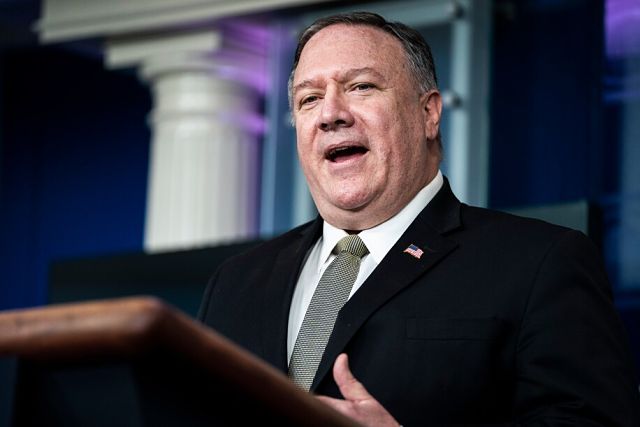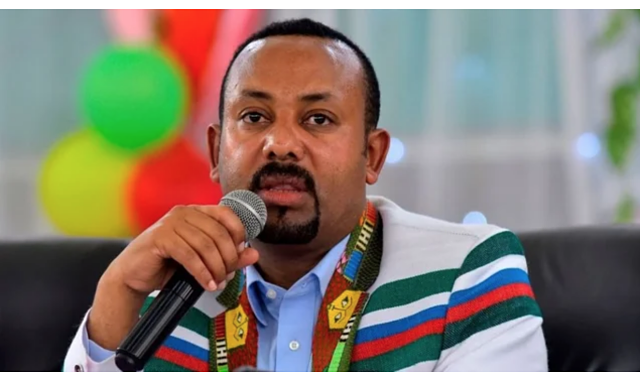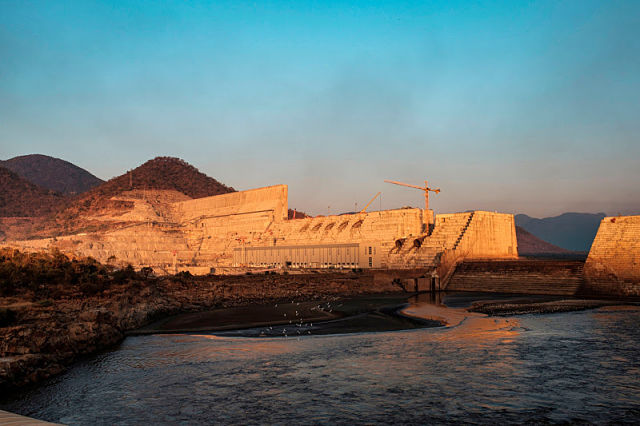 Mike Pompeo's handing of the Trump administration's foreign policy "has led to some of the worst diplomatic damage the United States has suffered in decades — especially in relations with its closest allies," writes The Washington Post's Deputy editorial page editor and columnist Jackson Diehl. (Photo: The Washington Post)
Mike Pompeo's handing of the Trump administration's foreign policy "has led to some of the worst diplomatic damage the United States has suffered in decades — especially in relations with its closest allies," writes The Washington Post's Deputy editorial page editor and columnist Jackson Diehl. (Photo: The Washington Post)
The Washington Post
Updated: August 30, 2020
As secretary of state, Mike Pompeo has presided over the collapse of negotiations with North Korea, the failure of a pressure campaign against Iran and an abortive attempt to oust Venezuela’s authoritarian regime. On his watch, China has carried out genocide in its Xinjiang region and the suppression of Hong Kong’s freedoms without resistance from Washington until it was too late.
Pompeo has failed to fill dozens of senior positions at the State Department, and hundreds of career diplomats have left or been driven out in political purges. Morale is at a historic low: In staff surveys, there has been a 34 percent increase between 2016 and 2019 in those who say the State Department’s senior leaders “did not maintain high levels of honesty and integrity.” Maybe that’s because Pompeo himself has defied legal mandates from Congress, skirted a law restricting arms sales to Saudi Arabia, tasked staffers with carrying out errands for himself and his wife, and fired the inspector general who was investigating his violations.
Last week, Pompeo crossed yet another ethical line by speaking before the Republican National Convention, thereby disregarding the State Department’s explicit legal guidance against such appearances. The speech he delivered was weak and littered with false or simply ludicrous claims, such as that the recent diplomatic accord between Israel and the United Arab Emirates is “a deal that our grandchildren will read about in their history books.” Maybe if they major in Middle Eastern affairs.
With his ambitions likely fixed on a presidential candidacy in 2024, Pompeo is undoubtedly hoping most of the diplomatic disasters will ultimately be blamed on President Trump, especially if Trump loses the November election. But the former Kansas congressman should not get off so easy. Yes, it’s Trump’s foreign policy. But Pompeo’s steering of it has led to some of the worst diplomatic damage the United States has suffered in decades — especially in relations with its closest allies.
—
Related:
Pompeo approves plans to halt aid to Ethiopia over Nile dam dispute

Getty Images
08/28/20
Secretary of State Mike Pompeo has approved plans to halt some U.S. aid to Ethiopia, Foreign Policy reported on Friday.
The halt in aid comes as the U.S. mediates a dispute over a dam on the Nile River that’s pitted Ethiopia against Egypt and Sudan, according to Foreign Policy. The decision could impact up to $130 million of assistance to programs including security, counter-terrorism and anti-human trafficking.
“There’s still progress being made, we still see a viable path forward here,” a U.S. official told the magazine. “The U.S. role is to do everything it can to help facilitate an agreement between the three countries that balance their interests. At the end of the day it has to be an agreement that works for these three countries.”
The State Department did not immediately respond to a request for comment from The Hill.
Ethiopia and Egypt are at a standstill in negotiations over how the dam on a tributary of the Nile will be managed.
Egypt and Sudan, which depend on the Nile for much of their fresh water, are opposed to any development they say will impact the flow downstream, including the 6,000-megawatt power plant Ethiopia hopes to develop at the dam.
—
Is the Trump Administration Using Aid to Bully Ethiopia Over Nile Dam?

It’s too bad that the U.S. has decided to take the wrong side in a local African dispute regarding the Grand Ethiopian Renaissance Dam. As the following FP article reports the Trump administration is cutting off “some foreign assistance” to Ethiopia over GERD. The scheme may be intended to tip the scale in Egypt’s favor, but if history is any indication this kind of foreign intimidation does not work in Ethiopia. It’s also worth mentioning that the dam, a $4.5 billion hydroelectric project, is being fully funded by the Ethiopian people. (Getty Images)
U.S. Halts Some Foreign Assistance Funding to Ethiopia Over Dam Dispute with Egypt, Sudan, Some U.S. officials fear the move will harm Washington’s relationship with Addis Ababa.
Updated: AUGUST 27, 2020
Secretary of State Mike Pompeo has approved a plan to halt U.S. foreign assistance to Ethiopia as the Trump administration attempts to mediate a dispute with Egypt and Sudan over the East African country’s construction of a massive dam on the Nile River.
The decision, made this week, could affect up to nearly $130 million in U.S. foreign assistance to Ethiopia and fuel new tensions in the relationship between Washington and Addis Ababa as it carries out plans to fill the dam, according to U.S. officials and congressional aides familiar with the matter. Officials cautioned that the details of the cuts are not yet set in stone and the finalized number could amount to less than $130 million.
Programs that are on the chopping block include security assistance, counterterrorism and military education and training, anti-human trafficking programs, and broader development assistance funding, officials and congressional aides said. The cuts would not impact U.S. funding for emergency humanitarian relief, food assistance, or health programs aimed at addressing COVID-19 and HIV/AIDS, officials said.
The move is meant to address the standoff between Ethiopia and other countries that rely on the Nile River downstream that have opposed the construction of the massive dam project, called the Grand Ethiopian Renaissance Dam. Egypt sees the dam’s construction as a core security issue given the country’s heavy reliance on the river for fresh water and agriculture, and in the past Egyptian President Abdel Fattah al-Sisi has hinted his country could use military force to halt the dam’s construction.
Some Ethiopian officials have said they believe the Trump administration is taking Egypt’s side in the dispute. President Donald Trump has shown a fondness for Sisi, reportedly calling him his “favorite dictator” during a G-7 summit last year. Officials familiar with negotiations said the Trump administration has not approved parallel cuts in foreign assistance to Egypt.
Administration officials have repeatedly assured all sides that Washington is an impartial mediator in the negotiations, which mark one of the few diplomatic initiatives in Africa that the president has played a personal and active role in. These officials pointed out that Egypt has accused the United States of taking Ethiopia’s side in the dispute as well.
“There’s still progress being made, we still see a viable path forward here,” said one U.S. official. “The U.S. role is to do everything it can to help facilitate an agreement between the three countries that balance their interests. At the end of the day it has to be an agreement that works for these three countries.”
But the move is likely to face sharp pushback on Capitol Hill, according to Congressional aides familiar with the matter. State Department officials briefed Congressional staff on the decision on Thursday, the aides said, and during the briefing insisted that the U.S.-Ethiopia relationship would remain strong despite a cutback in aid because the United States can have tough conversations “with friends.”
“This is a really fucking illogical way to show a ‘friend’ you really care,” one Congressional aide told Foreign Policy in response.
—
Join the conversation on Twitter and Facebook.

























